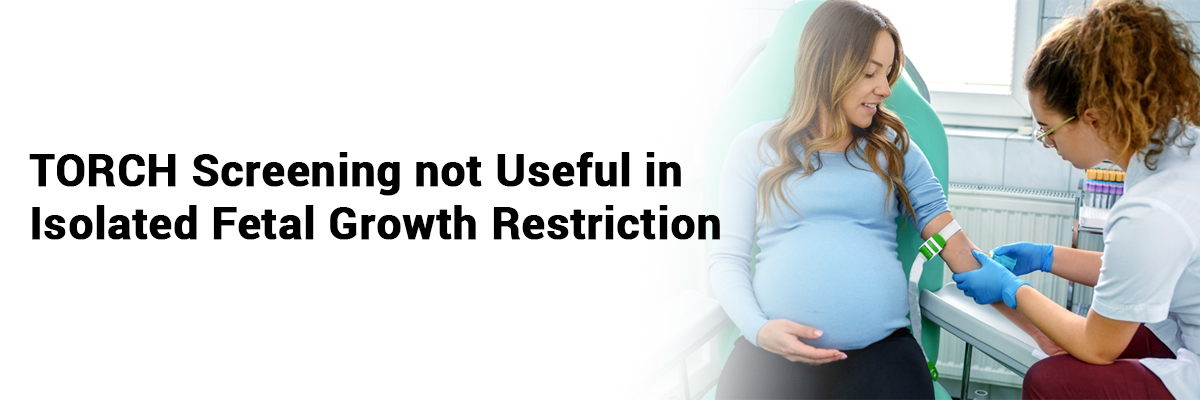
 IJCP Editorial Team
IJCP Editorial Team
TORCH screening not useful in isolated fetal growth restriction
The term TORCH includes well-identified causes of perinatal infections i.e. toxoplasmosis, rubella, cytomegalovirus (CMV) and herpes simplex virus (HSV). A TORCH serology panel is frequently utilized for testing maternal primary infection following the detection of ultrasound abnormalities in pregnancy.
A recent study estimated the diagnostic yield of maternal TORCH serology in pregnancy following fetal ultrasound abnormalities.
Studies that assessed maternal TORCH serology for suspected fetal infection and included information on indications for testing, the definition of positive TORCH serology results and perinatal outcomes were included.
The results were as follows-
- 8 studies describing 2538 pregnancies were included.
- Polyhydramnios, fetal growth restriction and hyperechogenic bowel were found to be the primary indications for testing.
- Out of 26 confirmed cases of congenital CMV, 15 showed multiple ultrasound abnormalities.
- No cases of congenital toxoplasmosis, rubella or HSV were confirmed in any of the included studies.
Thus a low clinical utility of TORCH serology for nonspecific ultrasound abnormalities like isolated fetal growth restriction or isolated Polyhydramnios is described. So TORCH acronym or the reflex ordering of TORCH should be retired to facilitate appropriate investigations for fetal ultrasound abnormalities.
SOURCE- Prenatal Diagnosis. 2022;42:87-96.

IJCP Editorial Team
Comprising seasoned professionals and experts from the medical field, the IJCP editorial team is dedicated to delivering timely and accurate content and thriving to provide attention-grabbing information for the readers. What sets them apart are their diverse expertise, spanning academia, research, and clinical practice, and their dedication to upholding the highest standards of quality and integrity. With a wealth of experience and a commitment to excellence, the IJCP editorial team strives to provide valuable perspectives, the latest trends, and in-depth analyses across various medical domains, all in a way that keeps you interested and engaged.






















Please login to comment on this article